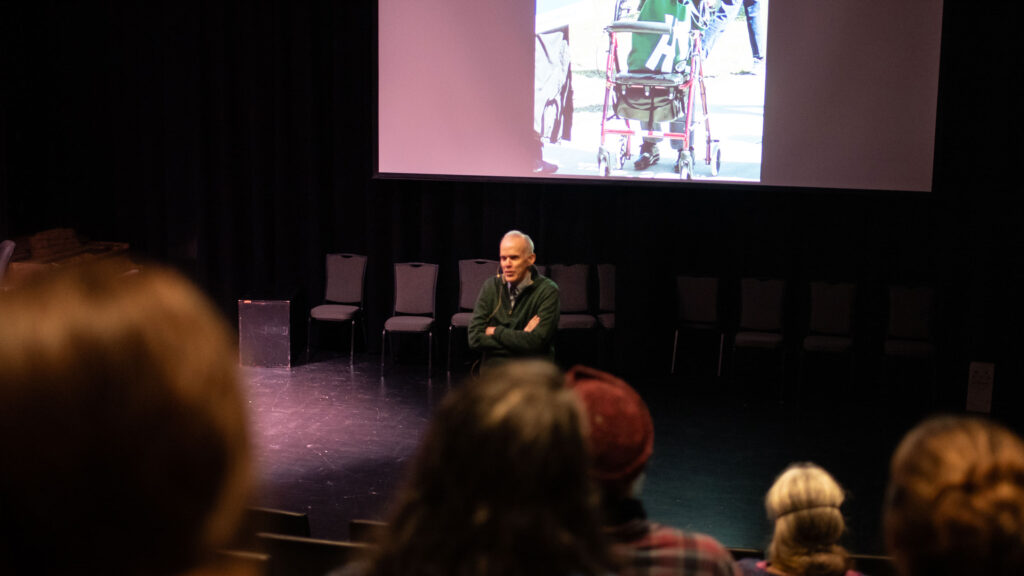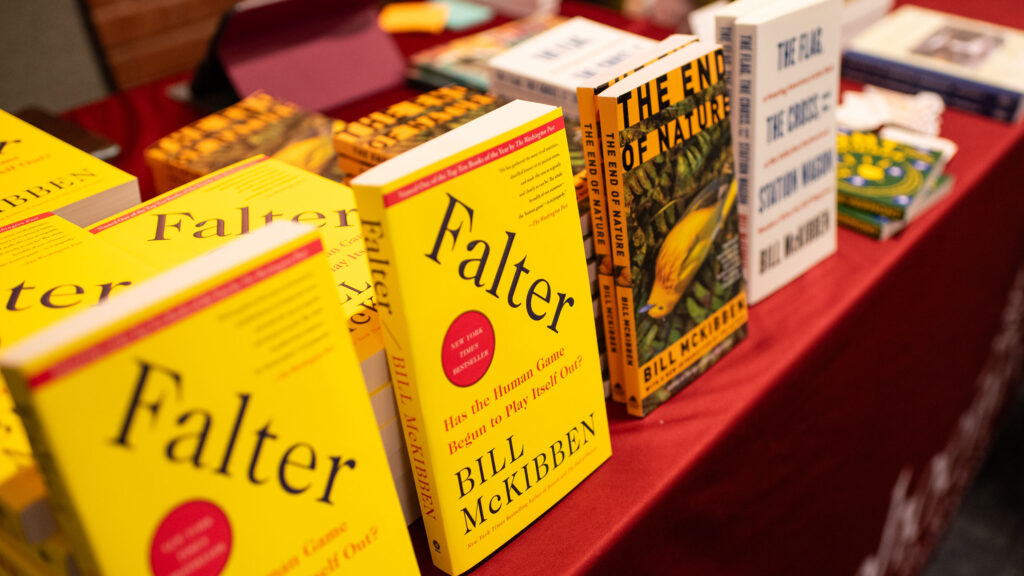After coming off the hottest year in history, climate change is at the forefront of many people’s minds, especially acclaimed author and activist Bill McKibben’s. On January 25, the author of The End of Nature—the first book about climate change written for a general audience—visited Champlain’s Alumni Auditorium to speak about the ongoing crisis, how he is working to stop it, and how our community can pitch in to save the planet.
McKibben arrived on campus after a critical win against permits for harvesting liquified natural gas in Louisiana and Texas, and was glad for the opportunity to refocus his attention on his home state of Vermont. He said he values coming to speak to his neighbors about the climate crisis and the opportunity to engage with attendees of varying demographics, genders, ages, races, ethnicities, and backgrounds. Because, in Mckibben’s words, “All of us have to be citizens of the larger society and use our power to force change.”


Going Green in Every Generation
“It turns out that the two groups in our society that care about climate change the most are actually young people and old people,” McKibben stated. His organization Third Act strives to encourage people over the age of sixty to use their voice and position for social change.
“I’ve heard one too many people my age say, ‘Oh, it’s up to the next generation to solve all these problems,’ which seems to be ignoble and impractical. Because, for all their earnestness and intelligence, idealism, and energy, young people lack the structural power to make the change that we need in the time that we have.”
This is why McKibben formed Third Act and why he continues to marshal support from older generations so students and young people can continue to grow their knowledge, skills, and confidence—especially in educational environments—in order to be ready to take the reins in the future.
With about 75,000 members and chapters in almost every state, Third Act has growing influence in communities across the country. In March of last year, the organization held demonstrations in 100 cities to protest big banks that fund the fossil fuel industry–protestors sat down in rocking chairs in front of the banks, effectively shutting them down.
“The most important thing an individual can do is be a little less than an individual. Join together with others in movements large enough to make change,” said McKibben. For younger generations, college is a gateway to that kind of community, built on shared values. He noted that Champlain and other colleges have key roles to play in the fight against the use of fossil fuels and climate change, and starting small on campus can be a great way to get involved. In practice, that could take the form of turning down the heat, walking or biking instead of driving, and spending your money mindfully. With the recent flooding in Vermont, McKibben noted that while climate change is a global issue, it has real consequences at the local level.


Station Wagon: A Graying American Looks Back at His Suburban Boyhood and Wonders What the Hell Happened, published in 2022.
Doing Our Part
Champlain students will recall being advised during Orientation to “get comfortable with being uncomfortable.” These words are repeated again and again. And they were echoed by McKibben, who noted in his presentation that it’s good “seeing people of any age going outside their comfort zone. ‘Cause the planet is so far outside its comfort zone now, that the rest of us need to be there, too.” McKibben said that he still gives talks, because “I always hope that a certain number of people in the audience will decide that they want to get involved themselves.”
At Champlain there are many ways to get involved. The Office of Sustainability, the Eco-Reps program, our Applied Sustainability major, and the Environmental Club are just a few ways that students can participate in sustainability and climate justice.
McKibben is confident that with enough motivation, community, movement, and voice, the world can change for the better. Even if every day or week can’t be as big of a win as limiting liquified natural gas, he hopes that by spreading the word, more people will rise to the challenge. Because in his words: “When we fight, sometimes we win, so we might as well fight.”